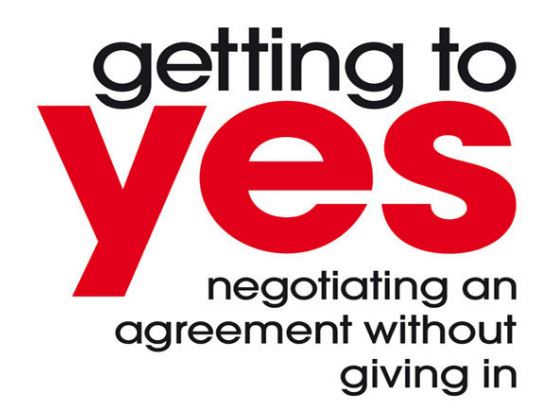The BEST: “Getting to Yes” and “You Can Negotiate Anything”

The BEST
Robert Fisher and William Ury, Getting to Yes: Negotiating Agreement Without Giving In and Herb Cohen, You Can Negotiate Anything
Chaim Strauchler
Summary: In the early 1980s, two books converted the specialized wisdom of negotiation into a popular form.
Fisher and Ury’s Getting to Yes present a methodology for reaching good agreements. Negotiations often take the form of positional bargaining. Each side opens with their position on an issue. The parties then bargain from their separate opening positions to agree on one position. Haggling over a price is a typical example. The book argues that positional bargaining does not produce good agreements. It is inefficient, and the agreements tend to neglect the parties’ interests. It encourages stubbornness and so tends to harm the parties’ relationship.
Fisher and Ury develop four different principles of negotiation: 1) separate the people from the problem; 2) focus on interests rather than positions; 3) generate a variety of options before settling on an agreement; and 4) insist that the agreement be based on objective criteria.
Cohen’s You Can Negotiate Anything makes a similar argument referring to win-win as opposed to win-lose negotiations. Sometimes both parties have to give up something that they want in order to reach a deal, this is called making a concession and is part of the win-lose negotiation mindset. But win-win negotiations are possible and much better. For everyone’s needs to be satisfied, they first need to be harmonized. In order to harmonize, one has to understand their true needs (as opposed to positions) first.
Message: Negotiation is a sub-category of all human interactions. The lessons of these books apply to all inter-personal dynamics.
Consumption Time:
Consumption Time: 150 pages – c. 300 minutes ~ 5 hours; 256 pages – c. 500 minutes ~ 8 1/3 hours
Why this is the BEST: How do you make someone fall in love with you?
Typically, this question is answered with some form of transactional thinking. If I love you, then you will love me. If I give to you, then you will give to me. It is only fair. Getting to Yes and You Can Negotiate Anything argue that this is not the case.
In negotiations, making concessions rarely generates concessions from the other side. Imagine approaching an appliance salesperson at a major department store and asking about the price for a refrigerator. Upon hearing the price, you offer 80% of it. “This is not an Iranian Shuk,” you hear, as the clerk turns away in disgust.
Now imagine a different fact pattern. You enter the same store and engage the same salesperson in a conversation. You discuss the various refrigerators available and learn about the different features that makes each unique. After 20 minutes, you thank the clerk and ask when he will next be on the floor. He informs you that he is working every weeknight that week.
You return the following evening. You meet the clerk with a smile and begin another 20 minute discussion, which concludes with you both agreeing on which model will best meet your family’s needs. You once again thank the salesperson, reflecting on how valuable his time is to you. You explain that you need to discuss this important purchase with your spouse, and that you intend to return the following evening.
Sure enough you return. Upon seeing the salesperson, you make a request. It’s a real stretch for you to make the purchase, can the store lower the price by 20%. What are the odds that the clerk will go into the back and call the regional manager to ask for the sale price that will go into effect in two weeks? Much higher than in the first case. Why?
Cohen argues that by virtue of the time and effort he has put into your potential refrigerator purchase, the salesperson will make sure that your purchase succeeds.
Rav Eliyahu Desler makes a similar point in his Mikhtav miEliyahu (vol. 1, Kuntres HaHesed, ch. 4, p. 36; Strive for Truth, vol. 1, p. 126). “Giving may bring about love for the same reason that a person loves what he himself has created or nurtured: he recognizes in it part of himself. Whether it is a child he brought into the world, an animal he has reared, a plant he has tended, or even a thing he has made… a person is bound in love to the work of his hands, for in it he finds himself.”
While useful in negotiations, Rabbi Dessler argues for this idea’s relevance for life more generally. If a person thinks about life as a taker, they will never have enough and never find happiness. If a person asks not of life, “Am I getting enough?” but instead “Am I giving enough?” – they will generate love within and happiness around themselves.
This is the fifth installment in TraditionOnline’s “The BEST” column, exploring exemplars of the best culture has to offer thinking religious people — click here for the series introduction.
Published on Aug 15, 2019
